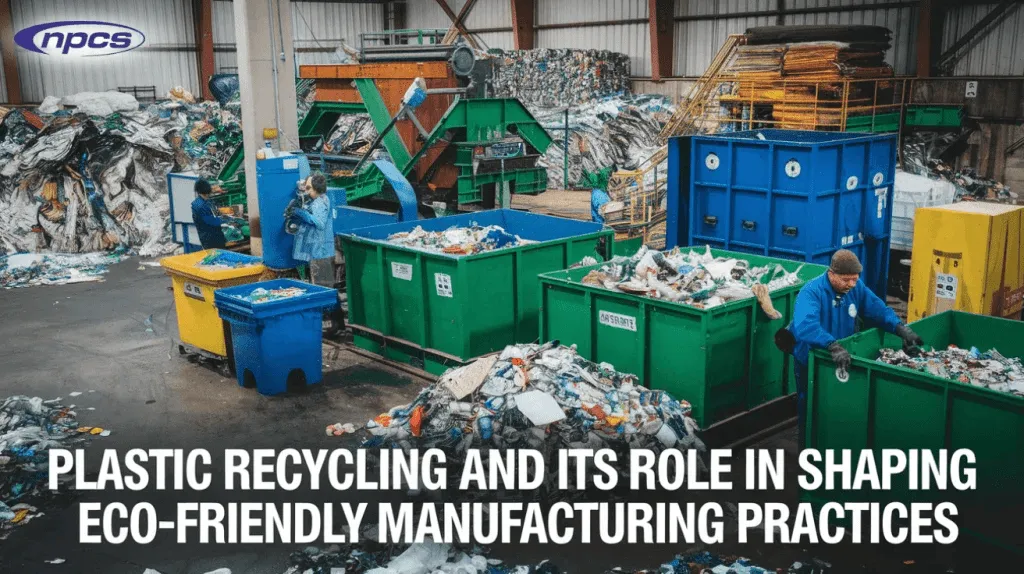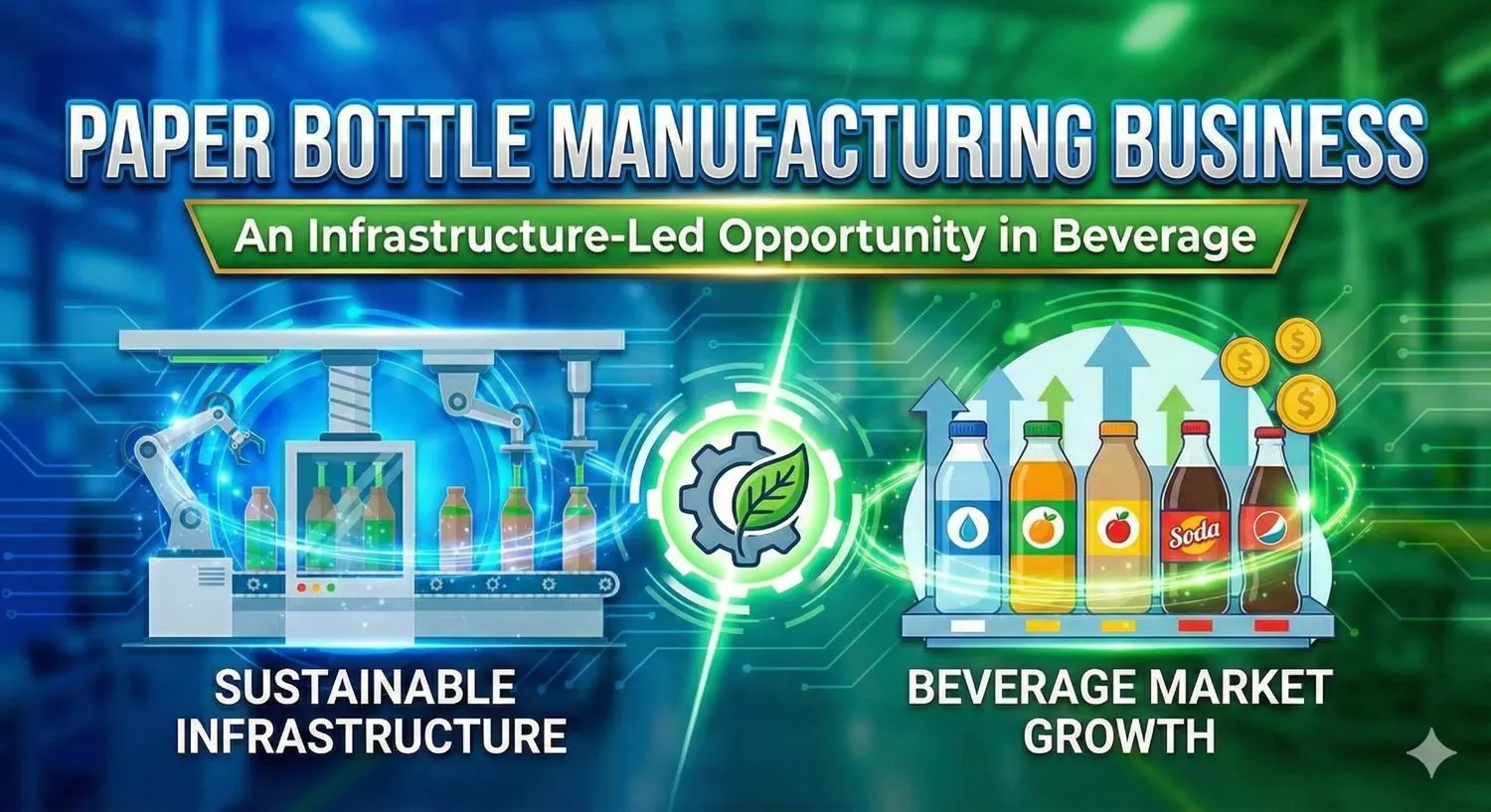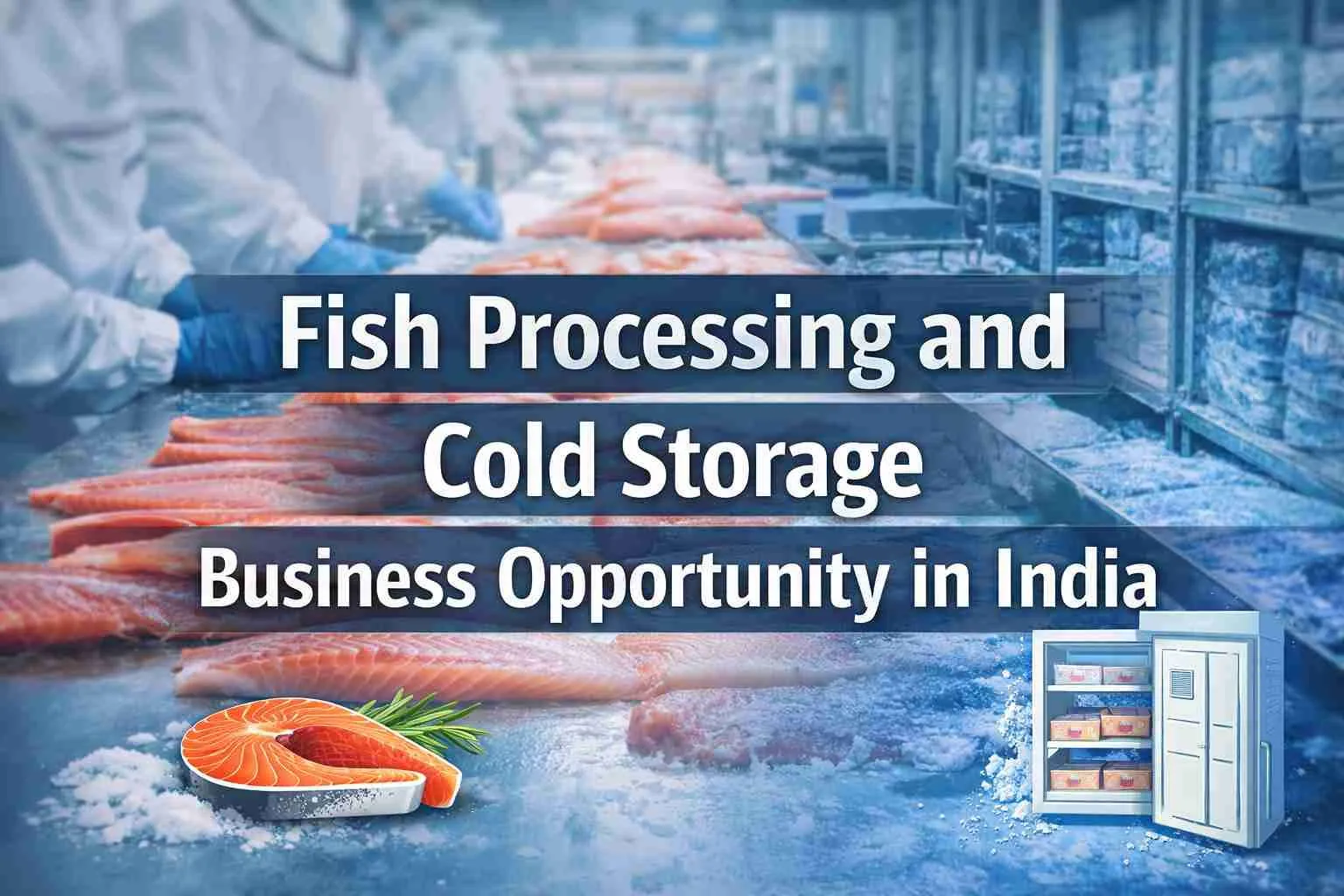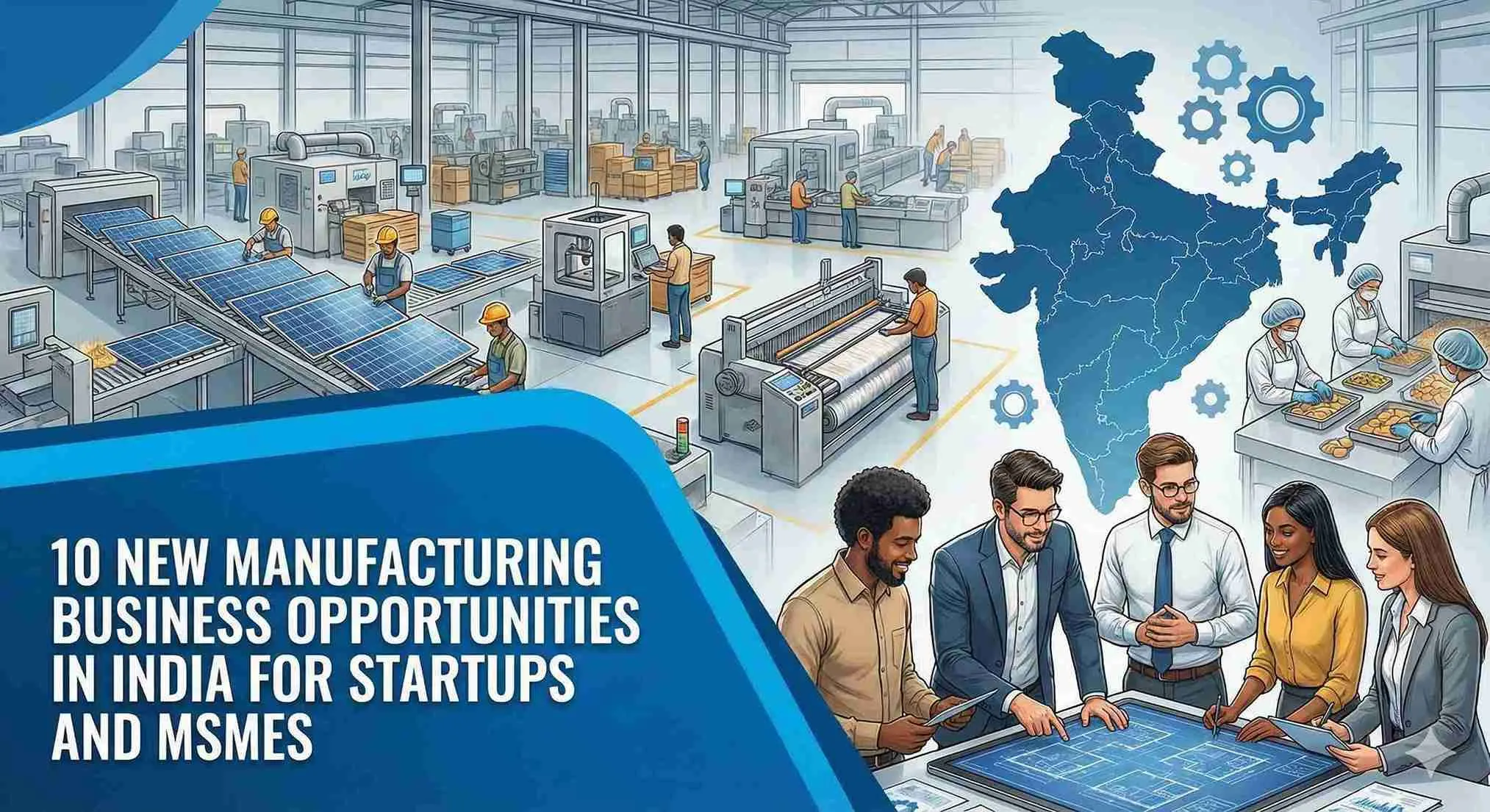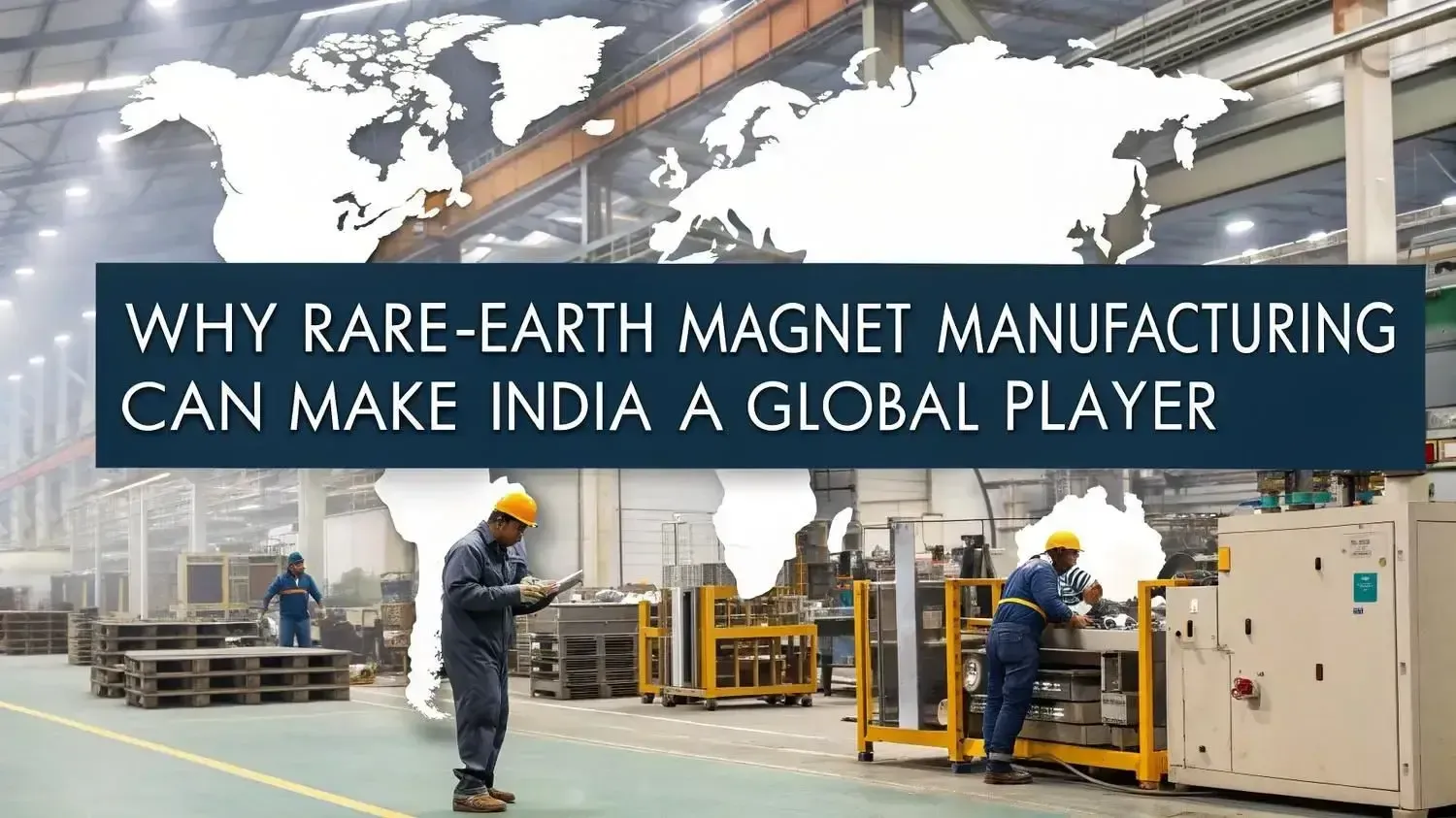Plastic recycling has been a crucial solution in fighting against waste and promoting sustainability in a world burdened by environmental problems. With increasing consumption of plastics comes increased pressure on manufacturing industries to adopt greener practices. By integrating recycling machines and innovative processes, these industries change not only the waste that is produced but the whole future of eco-conscious manufacturing.
Contents
- 0.0.1 Understanding the Importance of Plastic Recycling
- 0.0.2 How Plastic Recycling Machines Are Revolutionizing Manufacturing
- 0.0.3 Benefits of Plastic Recycling for Manufacturing Industries
- 0.0.4 Challenges in Plastic Recycling and How Industries Can Overcome Them
- 0.0.5 The Role of Governments and Policies in Promoting Plastic Recycling
- 0.0.6 How Plastic Recycling Shapes the Future of Eco-Friendly Manufacturing
- 0.0.7 Conclusion
- 1 Frequently Asked Question
Understanding the Importance of Plastic Recycling
Increasing use of plastics in the world has increased plastic waste. Every year, hundreds of tons of plastic end up being incinerated, going to landfills, or thrown into the oceans and into other parts of ecosystems. All such actions affect wildlife and promote pollution. The waste is converted into reusable materials through the means of plastic recycling, hence significantly reducing its environmental footprint.
Converting used plastics into processable raw materials using recycling thus minimizes the need for virgin production of plastics, which specifically conserves natural resources such as oil and constitutes reduced energy usage and greenhouse gas emissions.
The conversion of such materials into plastics can be attributed to lower expenditure on production and a better brand image for companies manufacturing products using recycled plastics as a result.
All these so-called recycled plastic products have the benefit of being made out of more advanced, efficient, and high-quality plastic recycling machines, which turn different types of plastics into superior reusable pellets catered to satisfy the diverse needs of different industries. For all these reasons, it becomes an obligation rather than an option for manufacturers to adopt these developments to satisfy global sustainability goals.
As the sustainable subject is becoming popular with consumers toward eco-products, plastic recycling is the way industries can go for sustainability while being environmentally friendly. Companies can prove that they are taking part in being stewards of the environment while also reaching out to a conscious customer base by integrating recycled content.
Also Read:
How Plastic Recycling Machines Are Revolutionizing Manufacturing
The modern technology that acts as a backbone in the plastic recycling process is advanced plastic recycling machines. The machines are responsible for the conversion of wasted plastics into new valuable raw materials used by industries in the course of manufacture. From the PET bottles to the HDPE containers, these machines do handle many varieties of plastic types, thereby taking the very first step toward sustainable production.
The machine is a great asset because of its capabilities to effectively separate, shred, and melt plastics to form high-quality recycled pellets, although such may hardly be produced elsewhere. The pellets are later fed back into the cycle of production instead of using virgin materials.
This reduction then brings down the production costs while letting that organization go with the world’s environmental standards in relief for the firm in reducing its carbon footprint. The utility of plastic recycling machines has also enhanced creativity, from very tough building materials to eye-catching fashion items.
The applications of recycled plastics are almost endless—from making durable construction materials to very stylish consumer goods. For manufacturing industries, this innovation means to open entirely new product lines without compromising ecology.
Governments are providing subsidies and tax benefits to encourage such initial investments by entrepreneurs to adopt plastic recycling machines. These initiatives will not just encourage environmentally friendly practices but will also facilitate the purchase of recycling technologies for small and medium enterprises. It will help in making manufacturers competitive in a sustainable market.
Benefits of Plastic Recycling for Manufacturing Industries
Economic and environmental benefits derived from plastic recycling in manufacturing industries, firstly, reduce dependency on virgin plastic, which is exorbitant and costs a lot of resources to produce. Thus, producing cost advantages for manufacturers to channel such resources elsewhere.
Furthermore, recycling gives a lot of credibility to a company’s sustainability agenda. Consumers today are looking towards companies with green practices, one of which is using recycled plastics in their products. Furthermore, plastic recycling machinery-equipped manufacturing industries can also comply with stringent environmental standards while avoiding possible fines and future compliance complications.
Apart from economic advantages, recycling carries more severe advantages to the environment. It involves reusing plastic waste, which relieves landfills and reduces pollution in the natural environment. It also conserves energy needed for producing virgin plastics, emitting fewer greenhouse gases. For industries that would like to attain carbon neutrality, recycling is one of the major strategies.
Additionally, plastic recycling creates opportunities for innovation in industries. Most recycling methods end up using recycled raw materials in developing innovative, sustainable products targeted at niche markets. This extends product diversity to a company but also greatly builds up its image as a pioneer in green manufacture.
This could compel advancement in plastic recycling by many manufacturers. Invest in modern plastic recycling machines and collaborate with industry mentors. Some platforms like NIIR.org have been providing immense resources and guidance to such businesses intending to go green instead of recycling on outdated methods.
Challenges in Plastic Recycling and How Industries Can Overcome Them
However, despite its tremendous potential, plastic recycling is faced with various challenges to its full realization. The problem is very complex, as most plastics are made from mixed materials or are contaminated from products, and thus find it hard to recycle. This variant of the waste collection process necessitates that the manufacturing industries invest in technology for sorting and adapting their processes to other plastic types.
Another major issue is establishing a strong infrastructure for recycling. The investment in equipment involved in plastic recycling machines is quite high and not affordable for small-scale manufacturers. Such costs can, however, be offset through channeling government incentives and grants or establishing a partnership with industry leaders.
Another issue further complicating the situation is the lack of awareness and education on recycling practices among consumers and industries. Effective recycling starts at the source with proper disposal and sorting of plastic waste. Industries must partner with communities to create awareness about responsibility in plastic disposal and the value of recycling.
The advent of technologies is making the recycling of plastics an efficient and cost-effective process for all concerned parties. Such innovations as AI-driven sorting systems and modular recycling units would make life easy for the manufacturer in achieving and streamlining an efficient recycling process. Normally, proactive adaptation and cooperation are the surest ways by which recycling can realize its full benefits with eco-friendly manufacturing.
Read Our Handbook:
- Medical, Municipal, and Plastic Waste Management Handbook
- Handbook on Biodegradable Plastics (Eco-Friendly Plastics)
- Modern Technology of Waste Management: Pollution Control, Recycling, Treatment & Utilization
- Bioplastics & Biodegradable Products Manufacturing Handbook
The Role of Governments and Policies in Promoting Plastic Recycling
Globally, government initiatives play an important role in promoting the recycling of plastics and sustainable regimes of manufacturing. By legislating, incentivizing, and running public campaigns, governments can practically change the way manufacturing industries think about plastic waste.
EPR has been one of the heaviest-hitting measures introduced within the field. Extended producer responsibility obligates the manufacturers to consider the entire life cycle of a product, including recycling from the consumer end. This encourages the industries to use recycled materials in their production as well as for making the investment necessary for machines to recycle plastics.
Financial incentives in the form of tax holidays and grants also encourage businesses to adopt green technologies and increase recycling. This makes small to medium enterprises a little more likely to invest in infrastructure for recycling as offsetting installation costs. Moreover, regulations formulated by the government that restrict the use of a single plastic while imposing penalties for improper waste management will help to push further towards sustainable practices.
Public-private partnership is another important method. By partnering with private manufacturers, the government can establish large recycling facilities on the one hand and improve its waste collection systems on the other. Such initiatives minimize environmental effects and stimulate economic opportunities in the recycling industry.
Balancing your initial cost understanding with long-term gains is necessary to maximize returns. Visit EntrepreneurIndia.co for detailed reports and subject matter experts on determining equipment suited for your needs. Their sources lead businesses to cost-effective and sustainable avenues. Thus with the analysis of these variables, a manufacturing industry can therefore select sustainable means of operation with maximized profit.
How Plastic Recycling Shapes the Future of Eco-Friendly Manufacturing
This is how one of the most original thought processes would look if one of the famous citizens tried to express it in their own words: Within this society, plastic recycling is one of the things that will make the future greener.
By closing the loophole of plastics in waste, the manufacturing industry moves from the linear to the circular economy, whereby resources can be reused rather than thrown away. Certainly, this shift will have greater implications in terms of sustainability and profit.
Most importantly, recycling plastic will save natural resources while further developing creativity for the next product design. This creates innovation opportunities as manufacturers begin to think of more sustainable alternatives to plastic. Industries are producing building materials, green packaging, and even textiles from recovered plastics.
The future of recycling will be dependent on the adoption of plastics recycling machines. These machines that are capable of processing huge amounts of waste have increased the ability of industries to scale recycling operations. Towards that extent, recycled green products can increase but maintain operational efficiency.
Forward-looking, intelligent integration of recycling technology on AI and IoT would yield better results. Such “smart” systems can optimize recycling process action, reduce waste, and even improve product quality. For manufacturing outfits, it represents an opportunity to spearhead the sustainability movement and set new benchmarks in responsible production.
Also Read:
Conclusion
Innovative machines for recycling plastics need to be invested in by the manufacturing industries, cashing in on sustainable practices and causing footprints below those of requirements while stretching the boundaries of consumer expectation and providing novel growth opportunities.
With informed choices and proactive investments, the journey to a greener future starts here. Businesses will stand to benefit from the know-how and resources provided by organizations such as NIIR.org as they seek to stretch their lead over the toughened terrain.
Contact Us
Frequently Asked Question
What is plastic recycling and why is it important?
Plastic recycling is the process of collecting, sorting, cleaning, and reprocessing plastic waste into reusable materials. It reduces landfill waste, cuts energy use in manufacturing, and lowers pollution.
How does plastic recycling support eco-friendly manufacturing practices?
Recycled plastics reduce the need for virgin raw materials, lower carbon emissions, save energy, and encourage circular economy models where waste becomes a resource for new products.
What are the common methods used in plastic recycling?
Common methods include mechanical recycling (shredding and reprocessing), chemical recycling (breaking plastic down into chemical components), and energy recovery, depending on material type and quality.
What challenges do plastic recyclers face?
Key challenges include sorting different plastic types, contamination, cost of recycling technologies, lack of infrastructure, and low prices for recycled materials compared to new plastics.

